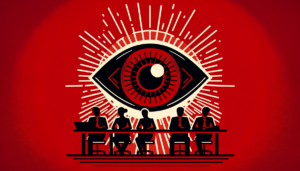The role of HR in building effective leadership teams
- 5 Min Read
Having a strong leadership team is essential for outstanding organizational performance. A team of talented and skilled leaders can make strategic decisions that drive growth, increase efficiency, and improve overall performance. However, building and maintaining a strong team can be challenging. HR leaders have a crucial role to play in this ongoing process. HR leaders […]
- Author: HRD Connect
- Date published: Feb 16, 2022
- Categories

Having a strong leadership team is essential for outstanding organizational performance. A team of talented and skilled leaders can make strategic decisions that drive growth, increase efficiency, and improve overall performance. However, building and maintaining a strong team can be challenging. HR leaders have a crucial role to play in this ongoing process.
HR leaders are responsible for attracting top talent, developing leadership skills, and retaining key leaders. Moreover, they should consistently support the development and retention of a strong team. Building effective leadership teams includes identifying potential, planning recruitment strategies, creating development opportunities, considering diversity and inclusion, and retaining top leaders.
Attracting top leadership team talent
Attracting top talent is a critical step in building a strong leadership team. HR professionals are responsible for identifying potential in job candidates and creating recruitment strategies that will attract the best and most qualified candidates.
One way to identify potential in job candidates is through behavioral interviews. These interviews focus on asking candidates about specific situations they have faced in the past and how they managed them, providing insight into how they might oversee similar situations in the future. Additionally, it is also important to be intentional about diversity and inclusion in recruitment strategies. A diverse leadership team brings different perspectives and ideas, which can drive innovation and improve decision-making. Set goals and be accountable for your progress in meeting them.
Another key aspect of attracting top talent is creating an effective recruitment strategy. This can include using targeted job postings, networking, and leveraging employee referral programs. Additionally, it is important to have a clear and compelling employer brand that resonates with top talent and will help attract them to your organization.
Developing leadership skills
Developing leadership skills is an ongoing process that is critical to building a strong team. HR professionals play a key role in providing training and development opportunities for current and future leaders within the organization. These opportunities can include workshops, seminars, and online training programs that focus on specific skills such as communication, decision-making, and strategic thinking.
Coaching and mentoring programs are also effective ways to develop these skills. These programs provide leaders with the guidance and support they need to improve their performance and reach their full potential. Internal experts, external consultants, or peer-to-peer mentoring programs can provide coaching and mentoring.
Succession planning is another important aspect of developing leadership skills. This process involves identifying key positions within the organization and developing plans to fill those positions with qualified candidates who are ready to step into leadership roles when needed. Succession planning helps ensure that the organization has a strong pipeline of future leaders and is prepared for the changes.
Retaining top talent
Retaining top talent is essential for building and maintaining a strong leadership team. HR professionals play a critical role in developing and implementing strategies for retaining top leaders within the organization. One key strategy for retaining top leaders is to provide competitive compensation and benefits packages. This includes offering competitive salaries, bonuses, and benefits such as health insurance, retirement plans, and paid time off.
Creating a positive work environment is another important strategy for retaining top talent. This includes fostering a culture of open communication, collaboration, and mutual respect. Providing opportunities for professional development and career advancement can also help retain top leaders.
Recognizing and rewarding leadership excellence is another way to retain top talent. HR professionals can work with leaders to develop a recognition program that rewards leaders for their contributions, performance, and achievements. This can include promotions, bonuses, awards, and other forms of recognition that acknowledge their work and dedication.
The ongoing battle for a high performing leadership team
As organizations continue to navigate a volatile business landscape, the importance of a strong leadership team has become more apparent than ever. The role of HR in building and maintaining such a team has become increasingly vital as the competition for top talent intensifies, particularly at the leadership level.
The current talent shortage crisis has highlighted that investing in leadership development is crucial for companies to stay competitive. The HR department is in a unique position to identify future leaders within the organization and provide them with the necessary training and development opportunities to help them reach their full potential.
A strong leadership team is a key driver of organizational success. Leaders who possess the necessary skills, knowledge, and experience can help an organization achieve its goals and drive growth. They can also serve as positive role models for other employees, fostering a culture of excellence and inspiring others to reach their full potential. As the business environment continues to evolve, the ongoing importance of HR in building and maintaining a strong leadership team will become increasingly critical. Investing in leadership development will be a key to success for any organization.
________________
HRD Connect delivers high-quality analysis, intelligence, and resources for senior HR leaders. We provide invaluable insights and exclusive interviews examining the most innovative practices that help HR leaders meet the challenges they face, including strategy & leadership, talent, rewards & benefits, digital transformation, DE&I, and employee engagement.
Access the latest case studies, thought leadership, and HRD Live Podcast episodes.









